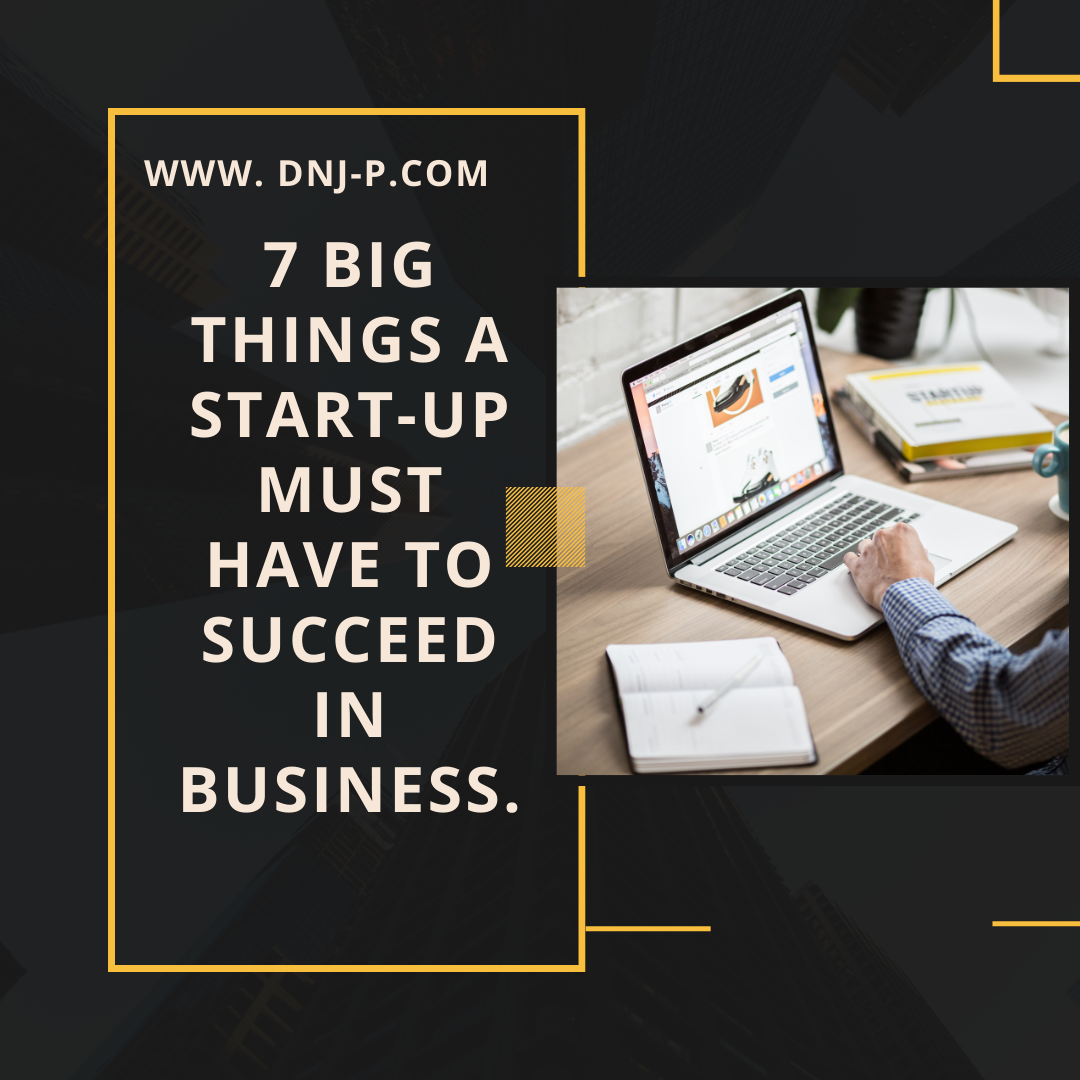DNJ.ENT 7 Big Things A Start-Up Must Have To Succeed In Business.

While these seven elements are essential, success also depends on factors like timing, competition, and luck. Additionally, maintaining a strong company culture, building a talented team, and fostering customer loyalty are critical aspects of long-term success. It's important for startups to stay focused on their goals, remain resilient in the face of challenges, and continually refine their strategies to increase their chances of success. Here are seven significant things a startup must have:

- Clear Value Proposition: A startup must offer a clear and compelling value proposition to its target audience. This means identifying a specific problem or need in the market and demonstrating how your product or service solves it better than existing alternatives.
- Strong Leadership: Effective leadership is crucial for guiding the startup through challenges and uncertainties. Founders and leaders should possess the vision, determination, and adaptability necessary to navigate the complexities of entrepreneurship.
- Market Research: In-depth market research is essential for understanding your target market, customer preferences, and competition. A solid understanding of the market allows you to make informed decisions about product development, pricing, and marketing strategies.
- A Scalable Business Model: A scalable business model is one that can grow efficiently as your customer base expands. It should be designed to accommodate increased demand without a proportionate increase in costs, allowing for sustainable growth.
- Sufficient Funding: Adequate funding is crucial for covering startup costs, scaling operations, and weathering any unforeseen challenges. Startups should secure enough capital through sources like investors, loans, or bootstrapping to sustain operations until profitability is achieved.
- Effective Marketing and Customer Acquisition: A startup needs a well-thought-out marketing and customer acquisition strategy to reach and engage its target audience. This includes branding, digital marketing, content creation, and customer relationship management.
- Continuous Innovation and Adaptation: The business world is constantly changing, and startups must be agile and willing to adapt. Innovation should be an ongoing process, with the flexibility to pivot when necessary in response to market feedback and evolving trends.